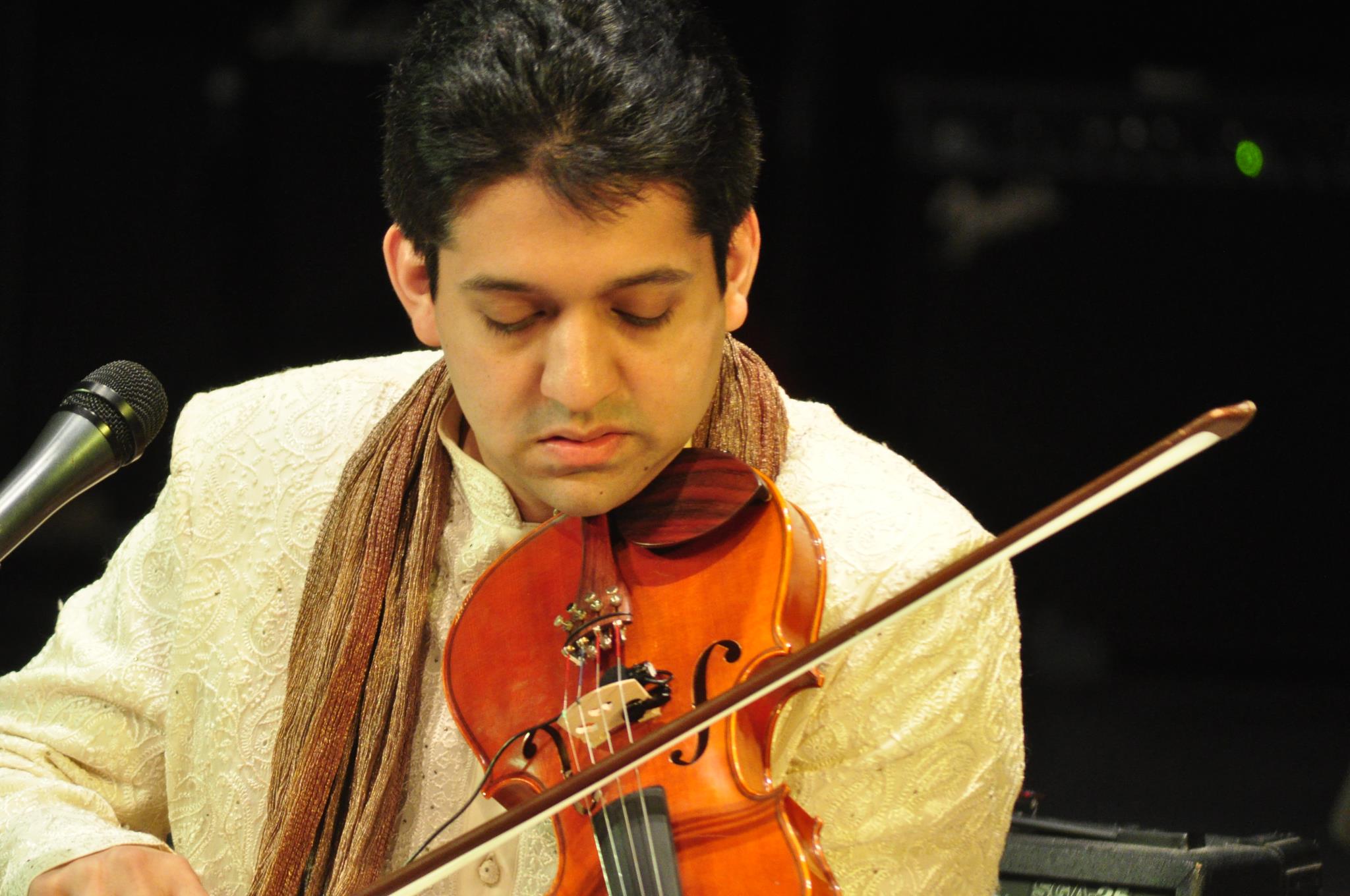


Sanjeev Rambhadran's first claim to fame was when he became the winner of the famous Saregama competition on Zee TV in the mid-90s. The program then was hosted by a young Sonu Nigam and the judge for the finals was none other than the doyen of Hindi film music- Anil Biswas.
Born and brought up in the US, Sanjee is now an acclaimed and much sought-after singer in the US program circuit. He is also a multi-instrumentalist. In this special series to commemorate Mohammed Rafi's 40th death anniversary, Sanjeev brings out various facets of Rafi's gaayaki through his songs with 40 different music directors. He also brilliantly pens his thoughts on these musical gems. Here is the tenth one from the series.Over to Sanjeev Rambhadran for a musical treat!
DAY 10: Composer S.N. Tripathi was a man of many parts - singer, violinist, screenplay writer, filmmaker, and even actor for a stint. His body of work was dominated by devotional/mythological/historical films such as Rani Roopmati (1959) and Sangeet Samraat Tansen (1962). Accordingly, his music was heavily tilted towards more "traditional" elements from native classical and folk genres.
Among S.N. Tripathi's collaborations with Mohd. Rafi, "Parwardigaar-e-Aalam" from Hatim Tai (1956) was a runaway hit which featured in Rafi-sahab's live shows decades later. Even more prominent, however, are the songs of the film Lal Qila (1960). The Yaman Kalyaan-based "Lagta Nahin Hai Dil Mera" has also been sung in almost identical tune by the highly-esteemed Habib Wali Mohd. - it is possible that composers S.N. Tripathi and Saraswati Devi were inspired by a common source while setting this poem to music. With all due respect, I am of the firm (and possibly minority) opinion that Mohd. Rafi's rendition, unconstrained by rhythmic accompaniment, far better captures the mood of the poem.
That notwithstanding, Mohd. Rafi is hauntingly soulful in the other well-known gazal from this film. With the turn of the decade, the penchant for the melancholy he had already amply displayed in the 1950s was augmented by a new level of polish and control, and the resulting balance is positively stunning.
Note: This poem, long attributed to Bahadur Shah Zafar, was identified in more recent times as an adaptation of a poem of Muztar Khairabadi whose son Jan Nisar Akhtar and grandson Javed Akhtar are of course well-known in literary/film circles.
#RememberingMohdRafi #40Years_40Songs_40Days_40Composers #Day10